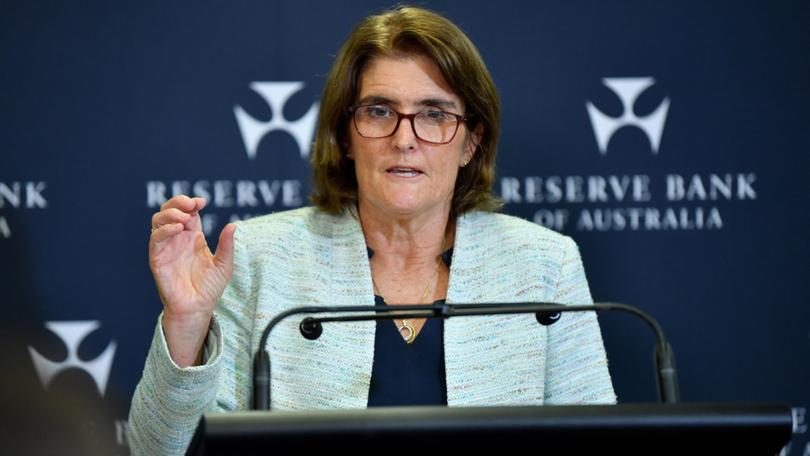IMF downgrades expectations for Australia’s economic growth amid forecast of higher-for-longer interest rates
The Reserve Bank of Australia has been told interest rates may need to stay higher for longer to ensure inflation continues to slide and economic growth does not fall significantly.

The Reserve Bank of Australia has been told interest rates may need to stay higher for longer to ensure inflation continues to slide and economic growth does not fall significantly.
In its latest assessment of the Asia-Pacific economy, the International Monetary Fund has struck a slightly optimistic tone for Australia, upgrading its expectations for Australia’s economic growth from six months ago, but it still expects growth to slow next year under the weight of restrictive interest rates.
A soft economic landing, where a recession would be avoided, is now more likely thanks to disinflation globally and the prospect of lower central bank interest rates throughout the region, the IMF on Tuesday said.
Sign up to The Nightly's newsletters.
Get the first look at the digital newspaper, curated daily stories and breaking headlines delivered to your inbox.
By continuing you agree to our Terms and Privacy Policy.But Australia stands out in the region, along with South Korea and New Zealand, as having inflation still above target thanks to persistent demand, and higher prices, for services. Inflation in Australia is now 3.6 per cent, well down from 7.8 per cent recorded in December 2022 but still above the RBA’s target of 2 to 3 per cent. Economists are concerned it will take some time to push the inflation rate down into the target range.
“Central banks may need to keep interest rates higher for longer,” IMF Asia and Pacific Department director Krishan Srinivasan said of advanced economies like Australia.
“Central banks should focus firmly on domestic conditions and avoid making decisions overly dependent on the expected path of US interest rates.”
The IMF now expects Australia’s economy will grow by 1.5 per cent this year, up from 1.2 per cent six months ago, and by 2 per cent in 2025 — an unchanged view.
But that growth is down from an expected 2.1 per cent this year, fuelled by the tighter rates stance. Interest rates are now at 4.35 per cent in Australia and some economists have suggested they could stay on hold as long as March next year. Still others are optimistic for rate cuts as early as September.
Dr Srinivasan said though following the US Federal Reserve’s moves on rates could limit the volatility in exchange rates to the US dollar, that would risk central banks destabilising inflation expectations, in turn threatening the path of disinflation.
The Fed, led by Jerome Powell, had until recently expected to cut rates as soon as next month. That has since been delayed and economic analysts are now suggesting it could be some months before the US does follow through with cuts given hotter than expected inflation. It next meets on Wednesday, US time.
The highest risk to the Asian economy is a contraction in the Chinese property sector, the IMF believes, particularly given the impact of that on trade. Lower export prices also pose a risk.
The IMF is urging the Chinese government to work towards policies that would push non-viable property developers out of the sector, encourage housing project completions and help the economy grow, improving prospects for China and the broader region.
It has also warned against the flow-on impacts of growing nationalisation and protectionism, as well as from potential shipping impacts from increased global conflict.
